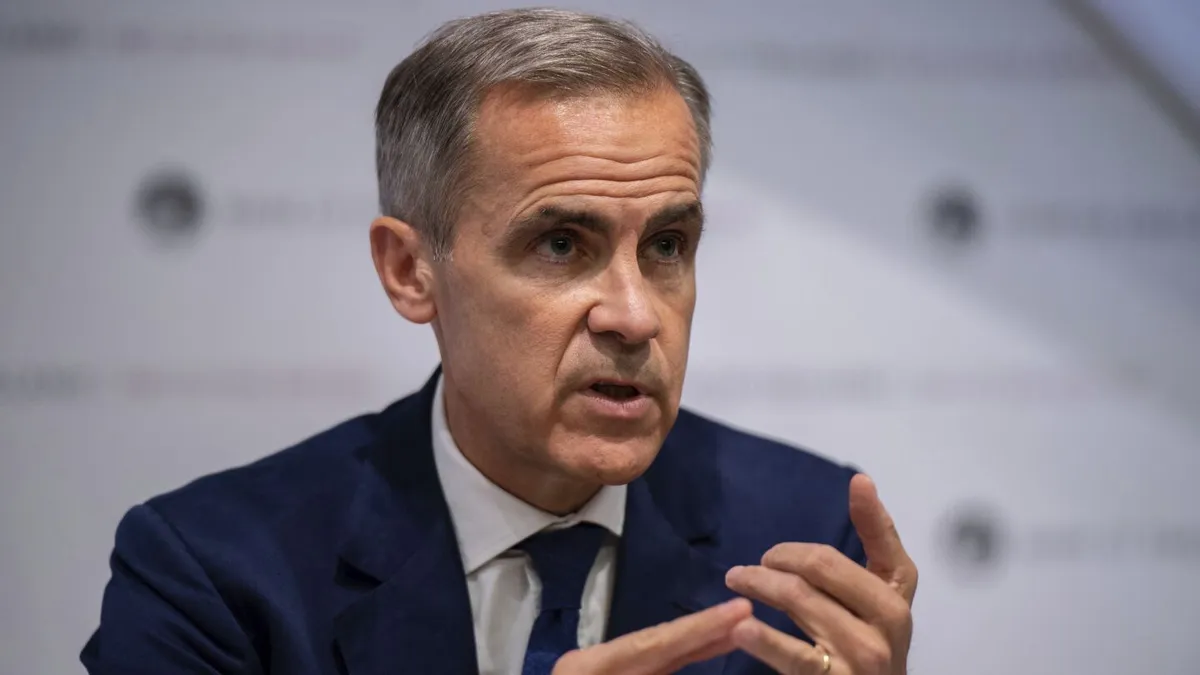
In a significant political shift, Mark Carney has been elected as Canada’s next prime minister, succeeding Justin Trudeau after an overwhelming vote of 85.9% from the governing Liberal Party. Carney, a former central banker at the helm of both the Bank of Canada and the Bank of England, is now tasked with navigating the complexities of a looming trade war instigated by U.S. President Donald Trump. His election comes at a critical time, with a federal election expected in the near future and increasing tensions surrounding U.S.-Canada relations.
At 59 years old, Carney brings a wealth of experience to his new role. Previously, he successfully guided Canada through the 2008 financial crisis and has been recognized for his adept handling of economic challenges, including the impacts of Brexit. His appointment is seen as a strategic move to bolster Canada’s economic resilience during turbulent times, especially with Trump’s aggressive tariff threats looming.
In his first statements as prime minister, Carney addressed the rising tensions with the U.S., declaring, “We didn’t ask for this fight. But Canadians are always ready when someone else drops the gloves.” He emphasized that Canada would maintain its retaliatory tariffs until the U.S. demonstrates respect towards Canadian interests.
The Canadian populace has expressed their frustration over American trade policies, with many booing the U.S. anthem at sports events and choosing to cancel trips to the U.S. This surge in Canadian nationalism has galvanized support for the Liberal Party, creating a favorable environment for Carney as he prepares for what many anticipate will be an imminent election.
Carney asserted, “The Americans want our resources, our water, our land, our country. If they succeed, they would destroy our way of life.” He drew a clear distinction between the two nations, stating, “In America, health care is big business. In Canada, it is a right.” This rhetoric resonates with many Canadians who value their healthcare system and cultural identity.
With Trudeau’s popularity waning due to rising food and housing prices, as well as immigration concerns, the focus of the upcoming election is expected to shift towards how effectively Carney can handle U.S. relations. As the political landscape evolves, Carney’s leadership will be scrutinized under the lens of Canada’s economic stability and national identity.
Trump’s recent decision to postpone 25% tariffs on numerous goods from Canada and Mexico has created a brief respite, but further threats regarding tariffs on steel, aluminum, and dairy products loom large. Carney’s leadership will be crucial in addressing these challenges head-on.
Despite lacking extensive political experience, Carney’s background as a highly educated economist with experience on Wall Street positions him well for this role. He previously served as a deputy governor of the Bank of Canada before taking on the leadership roles at both the Bank of Canada and the Bank of England. His strategic decisions during financial crises have garnered him respect across party lines.
Notably, his candidacy received endorsements from several Cabinet ministers and members of Parliament, further solidifying his position within the Liberal Party. His commitment to economic action and climate finance as the United Nations’ special envoy showcases his dedication to addressing pressing global issues.
As Canada stands at a nation-defining moment, Carney’s leadership will be critical in navigating the challenges posed by the United States. Trudeau’s call for Liberal supporters to engage in the electoral process highlights the importance of active participation in democracy. The looming federal election will likely serve as a referendum on Carney’s ability to protect Canadian interests amidst external pressures.